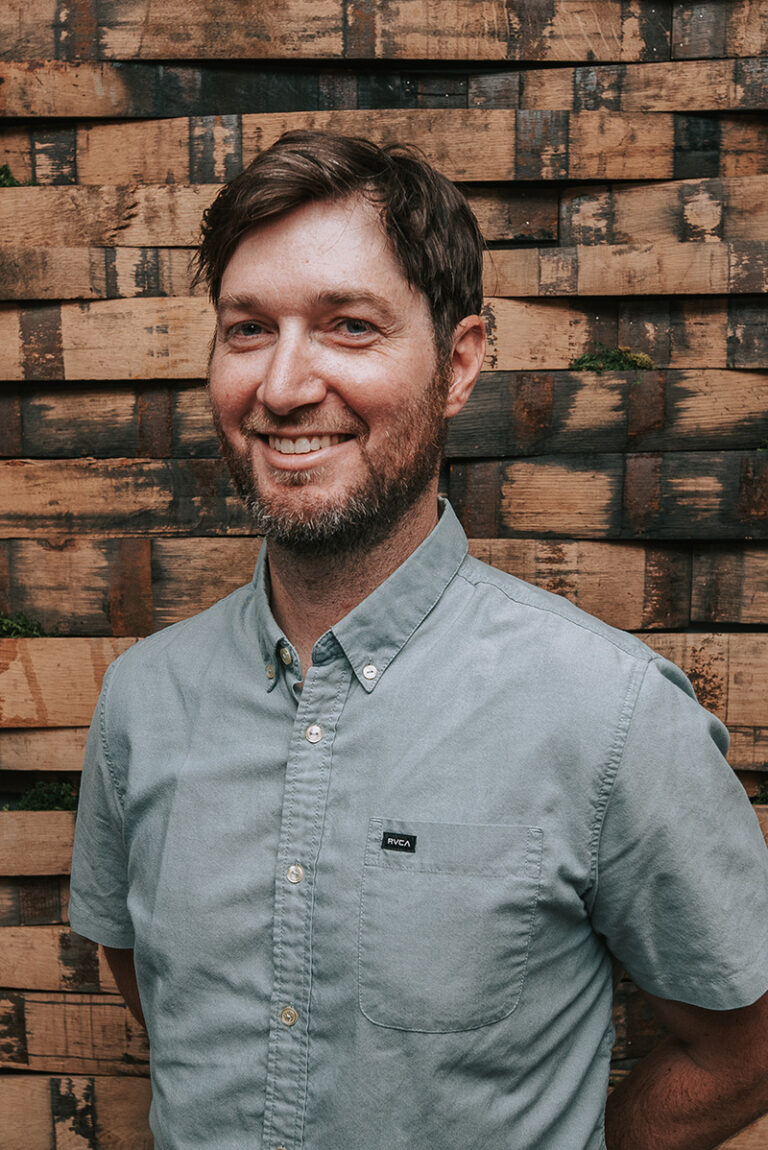The Story Behind the Justin C. Haeger Ten-Mile Memorial Run
You will never find a more unassuming or modest race director than Ron Haeger. Soft spoken yet easy to understand, he focuses on creating a road race that he would enjoy and then hopes people appreciate it. Although it’s difficult to get him to talk about the race at all, that humble nature doesn’t slow him down one bit. The success of his race defies standard measurements such as turnout or fund raising or longevity. Instead, he pulls together his family and close friends, and they work together to support and promote the Justin C. Haeger Ten-Mile Memorial Run. In doing so, they construct an unshakable foundation for dealing with the massive hole in their lives, as well as build a mechanism to give back to the community in Justin’s name.
Justin Haeger died from a prescription drug overdose (methadone) on Sunday, April 16th of 2006. While other families engaged in Easter egg hunts or celebrated Christ’s resurrection, the Haeger family spent the whole weekend in the Holy Family waiting room while doctors tried to save Justin. No doubt every journey following the loss of a loved one is difficult, but the recovery following the loss of a child may be the toughest journey of them all. Justin’s death felt like a wrecking ball pummeled the family. Yet, somewhere in the pain, the family agreed to take those devastating feelings and pour them into a cause, something worthy of Justin’s life. Ron Haeger participates in numerous fun runs, plus he has completed over a half dozen marathons, so he proposed a memorial run. Most everyone agreed, so it just kept rolling from there.
Because Daybreak of Spokane has some ties to Justin, the Haeger family elected to support Daybreak (www.daybreakinfo.org). Clearly, there are thousands of noble charities, but the decision to support Daybreak centers on three big reasons. First, 100% of the money stays in the Northwest. Second, the need for substance abuse solutions, particularly among adolescents, is spiraling out of control. Third, the payoff is almost immediate. The funds go directly into a proven system that gives people a fighting chance to turn their life around. Daybreak has been successfully treating teens for drug and alcohol abuse for over twenty years and has become an innovative leader in the youth drug and alcohol treatment field.
A 2006 National Survey on Drug Use and Health showed that among all youths aged 12 to 17, 6% had tried prescription drugs for recreational use in the last month. Monitoring The Future data (MTF Study) for 2007 shows that lifetime prevalence rates for amphetamine use without a doctor’s orders were 6.5% for 8th graders, 11.1% for 10th graders, and 11.4% for 12th graders. Adolescence is a difficult and radical time to address chemical use, abuse, and dependency. Any chemical use by a teenager (especially frequent, self destructive, or prolonged use) creates situations that drastically distort both the legitimate dependencies and the movements toward independence that are so necessary for any young person. Daybreak strains to meet those demands and answer those kinds of questions, and the Haeger family is pleased to bolster those who are making strides in assisting people faced with such a daunting, seemingly-impossible task.
Once the big decisions were settled, Ron needed to round up some sponsorship. Since Ron works at UPS, he felt comfortable approaching his superiors to see if they might support his race. In the back of his mind, he was hoping they might “sponsor a water station, or something, or maybe grant a few hundred bucks for the posters and T-shirts.” He never dreamed they would sign over a healthy check, as well as supplement a few dozen volunteer hours for course set up, water stations, timing, and tear down. Ultimately, the buzz for this race at the local UPS distribution centers drew enough attention that Ron was asked to speak about his loss at multiple company meetings. Fired up, he not only spoke about Justin, but also spoke about preventative steps and solutions, which in turn drummed up greater Daybreak support. For Ron, the JCH Memorial Race isn’t about miles. Instead, it’s a platform to create new Haeger family memories, as well as bring awareness to the public about prescription drug abuse.
Last year, the race was strictly 10 miles. However, this year they will be offering a shorter 3.3-mile course. Both routes start and finish at Spokane Falls Community College, but the ten-mile route allows runners to cover many of the best sections of Riverside State Park.
“The course is fantastic,” says avid runner Chris Wells, “It helps to prepare and know where the hills are, but otherwise you can’t beat the scenery on that part of the Centennial Trail, or any race course that follows along the Spokane River for that matter. Parking is simple, the water stations are great, and it all goes to a good cause.”
Naturally, Ron ducks any credit and notoriety. Instead, he notes you can live your life reacting to problems or reacting to priorities, and that attitude shift makes all the difference. His faith in Jesus Christ, the unfailing strength of his family, and a passion to insure that the loss of his son, along with those facing similar losses, isn’t forgotten, all of these things drive Ron to give back through one of the best fun runs in the community.
This year’s race is Saturday, June 14. Sign ip at: www.jchtenmiler.com













